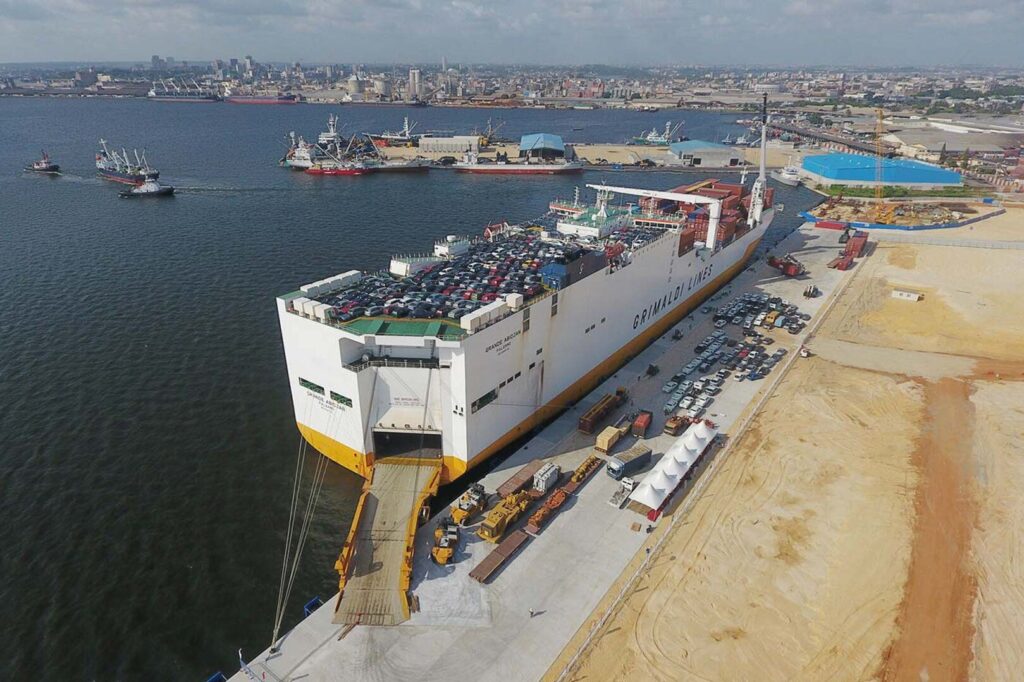Both Ivory Coast and Tanzania have announced a considerable increase in the volume of cargo handled at their main ports – the port of Abidjan and the port of Dar es Salaam respectively.
by Blue Africa News
African ports on the continent’s east and west coasts are continuing a steady surge in cargo volumes, according to ports officials.
In Ivory Coast, the volume of cargo handled at the port of Abidjan increased by 15.6% from 34.7 million tons in 2023 to over 40 million tons in 2024, according to the port’s Director General.
During a press conference on September 5, Yacouba Hien Sié, the port’s Director General also announced that container traffic had seen significant growth, rising from 1,238,195 twenty-foot equivalent units (TEUs) in 2023, to 1,646,304 TEUs in 2024, a 33% increase.
The increase did not come out of the blue. Reports indicate that since 2012, approximately 1,100 billion CFA francs (approximately US$1.98 billion) have been invested in major infrastructure projects at the port.
The deepening of the Vridi Canal, the commissioning of a second container terminal, the construction of a roll-on/roll-off terminal, modernisation of the fishing port to accommodate large trawlers and the construction of a grain terminal are some of the projects that have been undertaken at the port of Abidjan – Ivory Coast’s main maritime hub.
In Tanzania, the Tanzania Ports Authority (TPA) announced that the port of Dar es Salaam handled a record of 27.7 million tons of cargo during the 2024/25 financial year.
According to TPA Director General Plasduce Mbossa who spoke on behalf of the authority’s acting Dar es Salaam Port Director Abed Gallus, the growth reflects consistent government investment and effective partnerships with private operators.
The figure, TPA director general said, represents an upward surge from 18 million tons in 2021/22.
“This represents a 15% annual growth, a level not achieved since the port’s inception,” said Gallus, crediting two operators for the massive milestone: “Since operators DP World and Tanzania East Africa Gateway Terminal Limited (TEAGTL) joined, capacity has grown from 23.69 million tons in 2023/24 to 27.7 million tons in 2024/25.”
During the period under review, he said, the average service time for a container ship dropped from ten to three days.
“That time saving has had a ripple effect across the entire trade corridor, from factory floors to retail shelves.”
The game changer was diverting some cargo to the Kwala Dry Port to ease yard congestion and city traffic, with the cargo being moved there by rail.
TPA is now focusing on routine maintenance, digital system integration and streamlined documentation processes not only to protect the gains, but also reach new heights.
“If we maintain the depth, the discipline and the tempo, Dar es Salaam port will set a new standard for the national economy.”
Oliver Ochieng, Blue Africa News

